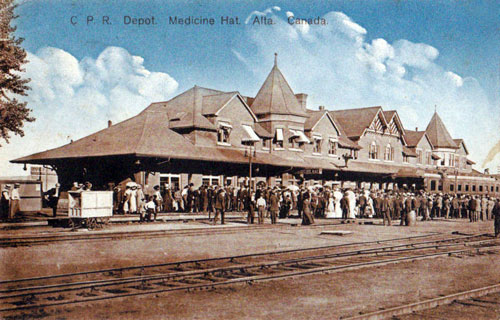Constance Mary Greenwood was born in Calgary, Alberta, Canada on the 16th day of April 1920 and was the only daughter of Robert and Hannah Greenwood. “Aunt Hannah’s” maiden name was Williams. “Connie” was the cousin of my wife’s father, Norman Medlicott of Medicine Hat, Alberta and throughout our marriage she was an integral part of our family. Having never married, she was a regular guest at our home at the many family celebrations we had, whether it was Christmas or Thanksgiving or any other family get together. My fondest memories, with all the excitement surrounding Christmas, was to arrange to meet the Greyhound bus in Medicine Hat and to pickup “Cousin Connie” as she travelled from Calgary to Medicine Hat and either take her to our home or to my wife’s parents home for the Christmas holidays. This was a ritual, which occurred for many, many years. She was very well read and extremely bright and everyone wanted her on his or her team for the annual after Christmas dinner “Trivial Pursuit” tournament.
Connie was a member of the Canadian Women’s Army Corp during WWII [CWAC] and we often joked about her role during the war as a “resistance fighter” having parachuted into France behind enemy lines in the months before D-Day and working with the French Resistance fighting the Nazis prior to the invasion. Her role during the war was always a mystery to us, as she seldom talked about her “wartime” experience but when pressed when she would say that she simply had “worked” in the laundry in England! This was met with some amusement and much skepticism!READ ON
